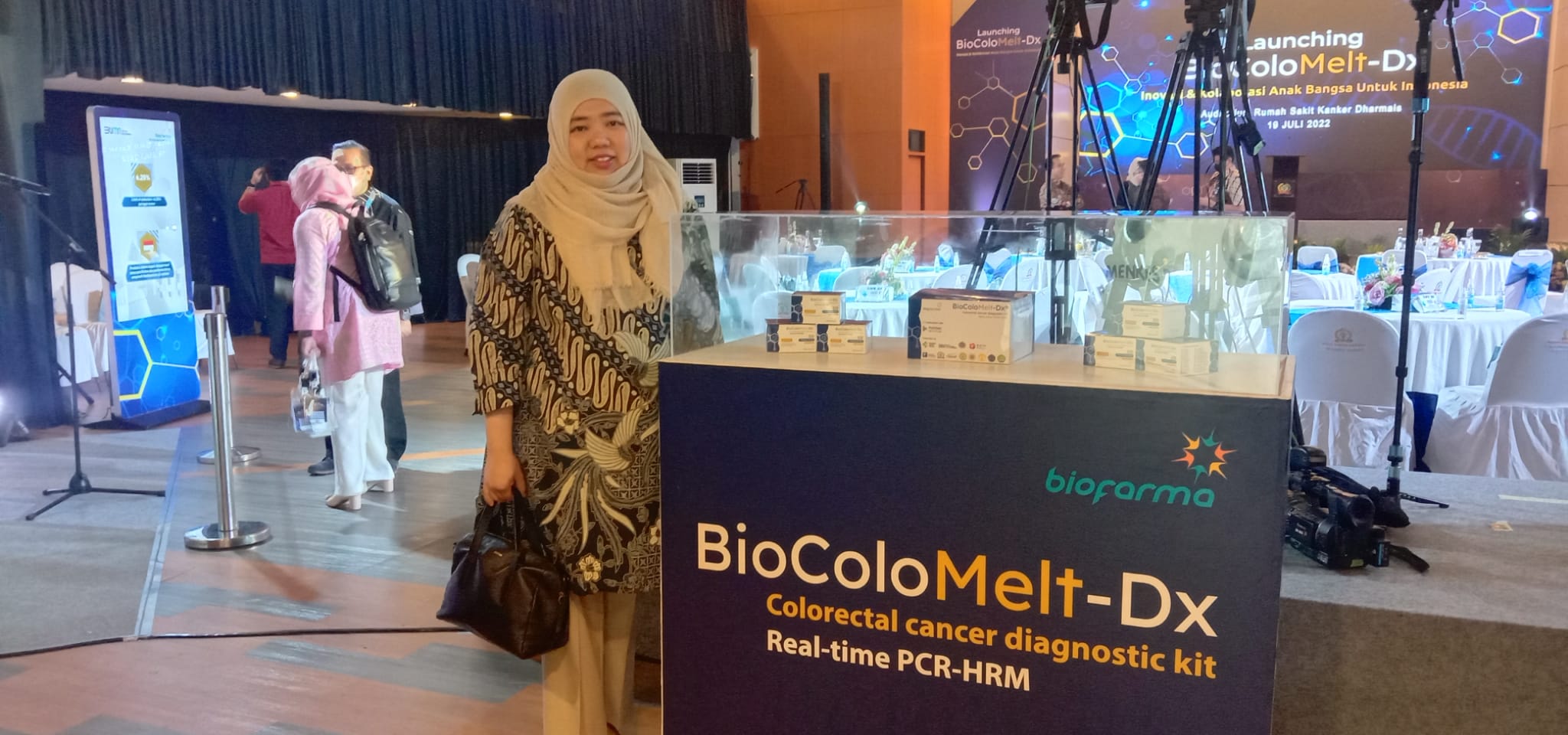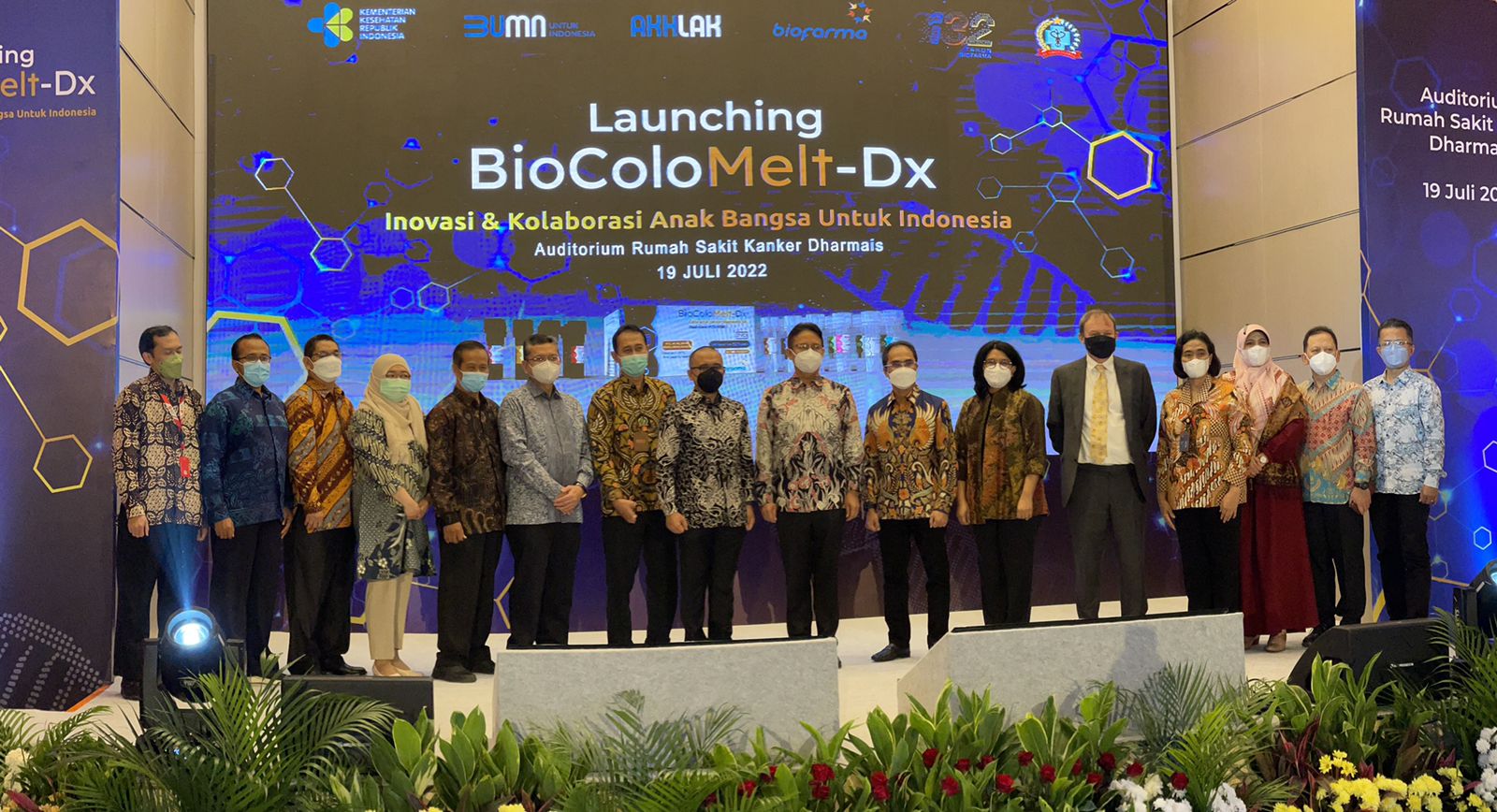A diagnostic test, developed by experts at the University of Nottingham, will speed up the diagnosis of colorectal cancer in patients ensuring they receive treatment more effectively, potentially saving thousands of lives.
Based on research developed by scientists at the University, an IP license has been translated by a start-up company called PathGen Diagnostik Teknologi in collaboration with Bio Farma, to develop an affordable molecular diagnostic kit for patients with colorectal cancer (CRC) in Indonesia, called BioColoMelt-Dx.
Every year, more than 35,000 cases of CRC occur in Indonesia. Around 35% of CRC are in patients younger than 50. They have a poorer outcome, and many cases may be inherited. Management of CRC is by surgery, but up to 50% will also require chemotherapy. Precision treatment in these cases is vital to improve survival rates.
Dr Susanti Susanti and Professor Mohammad Ilyas from the School of Medicine at the University of Nottingham established the Nottingham-Indonesia Collaboration for Clinical Research and Training (NICCRAT) in 2019, with the aim of developing research partnerships with several Indonesian research institutions.
This new test is the result of this research. It is cheap and easy to use and will potentially save thousands of lives, as it allows more precise and effective treatment of CRC, while preventing the side-effects of unnecessary treatment. It will also determine if the patients have inherited Lynch Syndrome (LS).
LS is a hereditary type of CRC that is associated with a younger age of patients with CRC. Detecting LS has been long reported to be a cost-effective strategy to provide aid in the diagnosis or management of the individual or at-risk family members by implementing appropriate surveillance for early diagnosis of associated cancers.
The test will now allow the families of patients who may share the same genetic condition to be monitored earlier, to detect and potentially prevent the cancer.

The Indonesia Minister of Health, Mr. Budi Gunadi Sadikin, officially launched the test in the summer at an event attended by Mr. Rob Fenn, the Deputy Head of Mission to Indonesia and Timor Leste. It is now being rolled out in some of Indonesia's largest hospitals in including the National Cancer Centre.
Professor Mohammad Ilyas said: "I am extremely proud and excited to see our lab work being translated into a product which will impact on peoples' lives – prolonging some and preventing others from receiving inappropriate therapy. I am grateful for the support from our funders – British Council's Newton Fund – and our collaborators in Indonesia. Without them, our data would have remained as a piece of interesting lab work."







